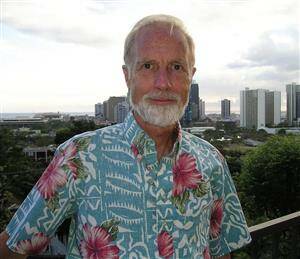BAC measure dies again
Legislation that would reduce the threshold for drunken driving from 0.08% blood alcohol content to 0.05% is dead for this year.
Legislation that would reduce the threshold for drunken driving from 0.08% blood alcohol content to 0.05% is dead for this year.
State Senate Bill 2384, which had passed the Senate, passed its first House of Representatives floor reading on March 7, but died when it wasn’t scheduled to be heard by the House Transportation Committee by a March 14 deadline.
ADVERTISING
The bill was introduced by Sen. Karl Rhoads, an urban Honolulu Democrat, with fellow Oahu Sens. Stanley Chang and Jarrett Keohokalole as co-sponsors.
“We heard the House version in the transportation committee back in February,” said House Transportation Chairman Chris Todd. Todd, who represents Hilo, introduced House Bill 1935, the measure he referred to.
“And at the time, when I met with advocates for the reduction, I told them I was a little skeptical,” he said. “I’d done a lot of research on the issue. I was concerned that the impact on actual traffic fatalities could potentially be minimal. But I agreed to hear the measure.”
Advocates for reducing the BAC level for legal intoxication include the National Transportation Safety Board, Gov. Josh Green, the state Department of Transportation, Hawaii County Prosecutor Kelden Waltjen and prosecutors from the other three counties, Hawaii County Police Chief Benjamin Moszkowicz and other county police departments, Hawaii County Councilwoman Jenn Kagiwada, Mothers Against Drunk Driving Hawaii, Hawaii Alcohol Policy Alliance, Hawaii Substance Abuse Coalition and Lokahi Treatment Centers.
Those opposed to reducing the BAC level include the Office of the Public Defender, Mahalo Aleworks, Big Island Brewhaus, Kauai Beer Co., Lanikai Brewing Co., Maui Chamber of Commerce, and Craft ‘Ohana — the parent company of Maui Brewing.
Arkie Koehl, a Public Policy Committee member for MADD Hawaii, said he expected Todd to hear SB 2384 and for the bill to pass the House Transportation Committee “because it’s the same bill” as the one Todd introduced in the House and that made it through the committee he chairs.
”But they didn’t hear it. Instead, they sat on it and killed it.”
The NTSB has since 2013 recommended the 0.05% BAC standard for impaired driving become the national standard. To date, only Utah has lowered the BAC limit to 0.05%, which it did in 2019.
MADD Hawaii’s written testimony called “the science behind 0.05% BAC limits … clear, well-documented and irrefutable.”
“More than 100 countries across the world have some type of 0.05% or lower BAC law. Utah enacted .05 legislation in 2018 and remains the only state in the nation” to do so, the organization testified. “Studies suggest over 1,700 lives could be saved each year if all states enacted a 0.05% BAC law.”
Todd’s bill passed the House Transportation Committee with amendments, including the insertion of language that would make a defendant with a BAC between 0.05% and 0.79% eligible for a deferred acceptance of a guilty or no contest plea, allowing that conviction to be expunged from the record, under certain conditions, and changing the effective date to July 1, 3000, to encourage further discussion.
The House measure passed a second floor vote, but wasn’t scheduled for a hearing by the Judiciary and Hawaiian Affairs Committee, chaired by Rep. David Tarnas, a Waimea Democrat, effectively killing it.
“One of the things that I told the advocates early on is that I didn’t believe there was a critical mass of support in the House. And I think that’s proven out,” Todd said. “So, when the bill failed to get out of the House the first time around, I decided not to hear the Senate version, because we’d already gone through the hearing, and it hadn’t gotten out of the House the first time
“The bottom line is, I don’t think the House has the support to pass a measure like this at the moment. I think there’s a lot of convincing to do. And I think the more data that comes out of Utah, which is the only state that’s implemented this, the better we can make an informed decision.”
Koehl said that advocates, community groups and law enforcement are “angry” the Legislature for the fifth consecutive year won’t send a bill lowering the BAC limit for impaired driving to the governor.
“The behavior of the House of Representatives’ leadership has been shocking this year,” Koehl said. “We are going to pick up the pieces and take it up again next year.”





